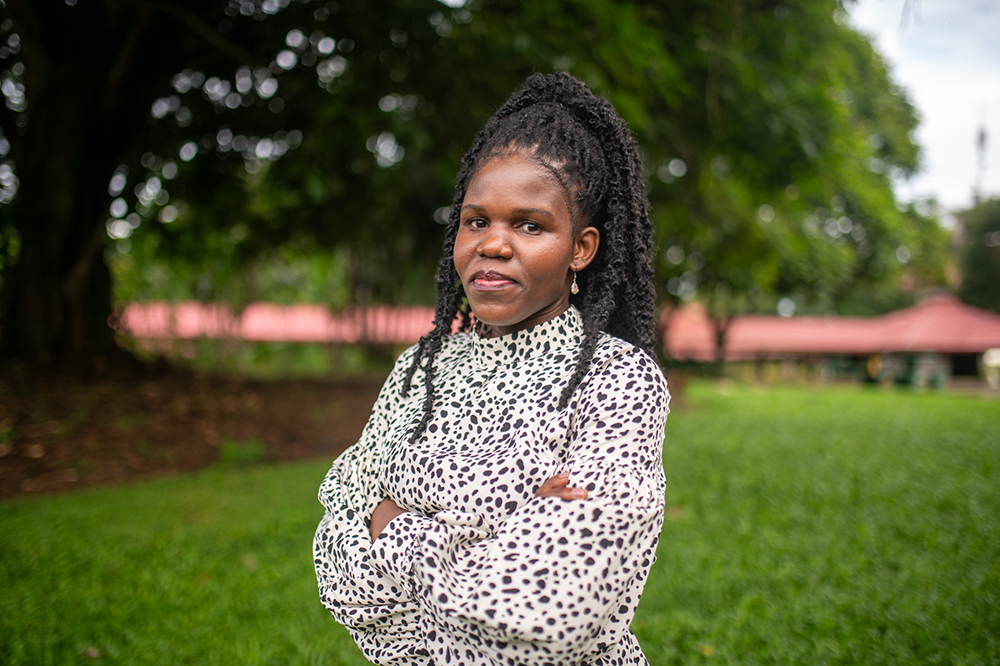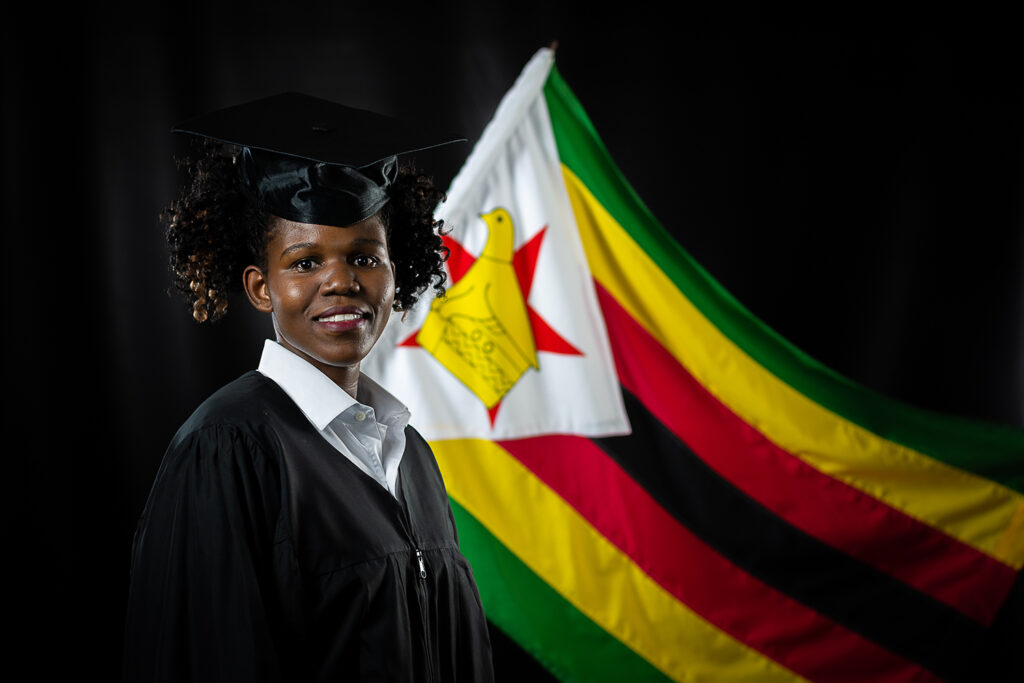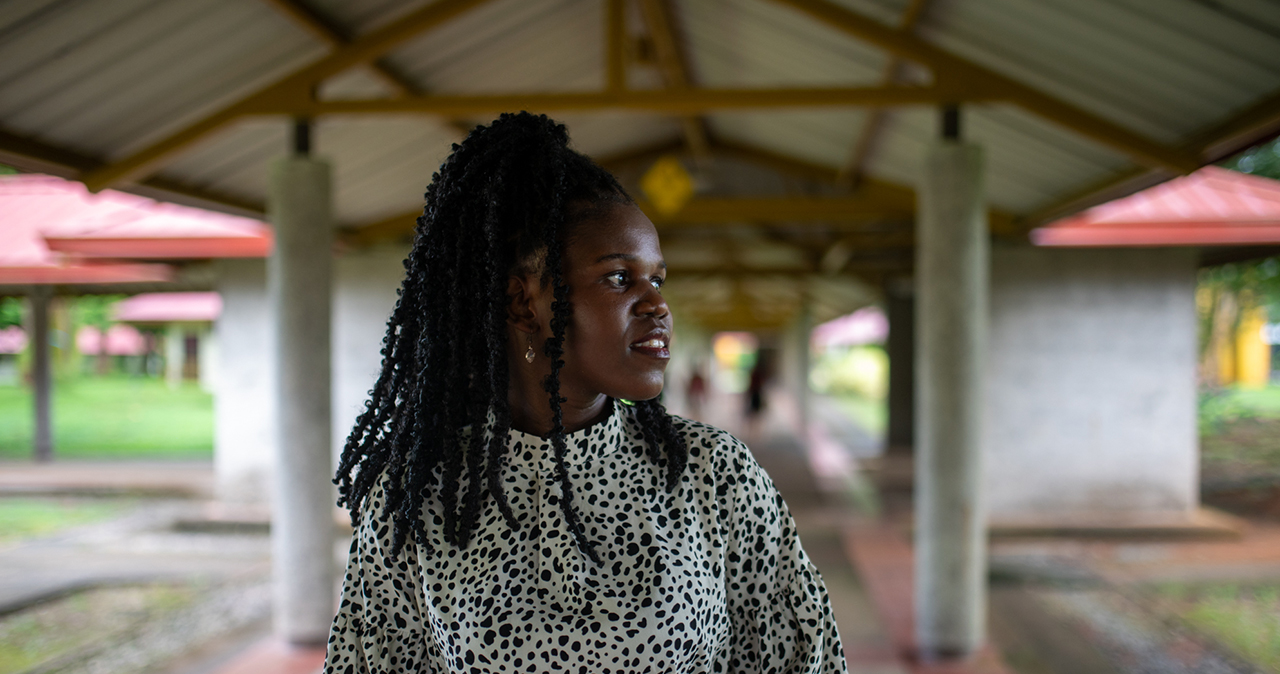After graduating, Mastercard Foundation Scholars Program Alumni from EARTH University, Forget Shareka (Class of 2019, Zimbabwe), decided to return to her country to launch Chashi Foods, a project she began developing during her third year. The business idea was born out of a desire to reduce post-harvest losses and support farmers in her community—especially women—by drying fruits and vegetables. Forget created the first prototypes at EARTH’s Food Processing Lab. By the time she returned home, she had already built a manual to bring Chashi Foods to life in the real world.
As her business began to grow, and just as the COVID-19 pandemic turned the world upside down, Forget began a master’s degree in Entrepreneurship and Innovation at the University of Edinburgh in Scotland. Despite the challenges she faced while studying and running her business, Forget found her true voice during that time. She interned with the NGO Solidaridad as a Climate Innovation Fellow, where she supported a sustainability lab in Zimbabwe from Scotland by analyzing national climate commitments. In doing so, she realized how disconnected public policies often are from the voices that matter most: those of the farmers. She understood that climate action must come from the roots—and that she had a role to play.

Her work, a Climate-Smart Agriculture Guide, co-developed with other EARTH alumni, was used to train over 100,000 smallholder farmers and generated employment for more than 700 people across five African countries. Along the way, Forget learned that technical knowledge without translation and inclusion does not reach those who need it most. That’s why she ensured that educational materials were created in languages such as Shona, her mother tongue, to make the information more accessible.
Over time, her vision expanded. Forget set out to understand how systems work, where the gaps were, and how to build real solutions from the ground up. Her professional journey took an unexpected turn when she became an Environmental Officer at a meat processing plant. Later, she made a complete industry shift into telecommunications, where she now leads sustainability and environmental governance projects.
Forget currently works on a UK government-funded project aimed at connecting rural communities through fiber-optic networks. “What I love is that the rural component is still there. I grew up in a community like that, and I know how important it is to include them,” she says. In this role, Forget conducts environmental impact assessments, evaluates routes for pole and duct installations, advises on sustainable public procurement, trains field teams, and promotes eco-actions such as planting pollinator-friendly species.

“I grew up in the countryside. Agriculture was our livelihood, our source of income. But more than that, it connected me to nature. Today I deeply value that connection, because it has shaped my entire career,” she says. Forget sees climate change not as an isolated phenomenon but as a systemic issue—a crisis that worsens others like poverty, hunger, displacement, gender inequality, and limited opportunities in rural areas.
When she arrived at EARTH, Forget realized that with the right tools and knowledge, she could be part of the solution to this global crisis. “When I got to the University, I made myself a promise: that my education had to benefit my community and stimulate the local economy. It wasn’t a coincidence that I ended up at EARTH. It was the right place at the right time. I came with a purpose—with hope to build a more sustainable community with greater opportunities to thrive.”
Forget’s current goal is clear: to sit at decision-making tables, ask the right questions, and ensure that silenced voices are heard. Without a doubt, this EARTH graduate and Mastercard Foundation Scholars Program Alumni has kept the promise she made to herself as a first-year student.
